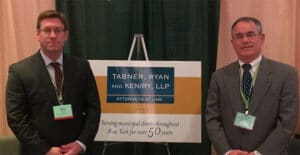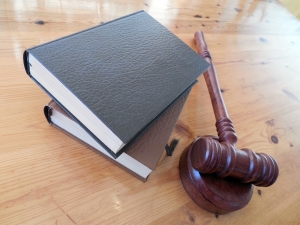An estate practitioner may be faced with a situation where the original will of the decedent cannot be found after his or her death. Don’t worry, at least not just yet.
In such a case, SCPA 1407 provides the procedure for admitting a lost or destroyed will to probate. The first hurdle is to establish that the will has not been revoked. However, this is no easy task.
“If a will, shown once to have existed and to have been in the [decedent’s] possession, cannot be found after [his or her] death, the legal presumption is that the [decedent] destroyed the will with the intention of revoking it” (Matter of Demetriou, 48 AD3d 463, 464 [2d Dept 2008]). “The burden of proof is on the will proponent to show, by facts and circumstances, that the testator did not destroy the will with the intent to revoke it; mere speculation or suspicion is insufficient” (Matter of DiSiena, 103 AD3d 1077, 1078 [3d Dept 2013]).
We recently had the opportunity to litigate this issue at the Appellate Division, Third Department. In the case, the record contained evidence that the decedent had disinherited one of her sons in several wills and a revocable trust, including the most recent will offered for probate. The son had left the family business and created his own competing business. The decedent therefore left her estate (including the family business) to her remaining children who had worked for the family business and contributed to its growth. The decedent also twice fought the disinherited son in court, once to preserve her rights to remove him from her will and another time to prevent him from obtaining an interest in her business.
At the Surrogate’s Court, the disinherited son sought summary judgment dismissing the probate petition. The disinherited son argued that the lost or destroyed will created a presumption of revocation and that the record evidence was insufficient to overcome the presumption.
The Surrogate’s Court ruled in favor of the disinherited son and granted summary judgment dismissing the probate petition. The Surrogate held that the proponents of the will did not overcome the presumption, relying on the strong presumption of revocation.
On appeal, we did not dispute the heavy burden imposed on a proponent of a lost will. Rather, we focused on the record evidence and argued that there was sufficient evidence to create a question of fact on the issue.
The appellate court agreed with us and reversed the summary dismissal of the case (Matter of DiSiena, 103 AD3d 1077 [3d Dept 2013]). It determined that the record evidence amounted to more than mere speculation or suspicion about the decedent’s lack of intent to revoke her will. The record, for example, contained evidence of the prior lawsuits and the several wills of the decedent disinheriting her son. Evidence also existed that the decedent had her estate attorney store her codicil for her until her death. The decedent also met with her estate attorney in her hospital room shortly before her death to discuss further estate planning. At that time, she instructed her estate attorney to create an irrevocable trust gifting her remaining interest in the family business to the identical beneficiaries named in her prior wills and revocable trust. The decedent also signed a power of attorney appointing her three children other than respondent as her agents. An unsigned copy of the irrevocable trust documents, which expressly state that respondent is not a beneficiary, was included in the record, and the estate attorney indicated that decedent died before he was able to meet with her to sign the trust documents.
While the case turned out successfully for our clients, we would not have been able to win the appeal without a sufficient record. A practitioner should be familiar with the numerous relevant factors considered by the courts on this issue and develop the record in case to avoid summary dismissal of the probate petition.
To learn more about relevant factors and case law, feel free to contact us.




















